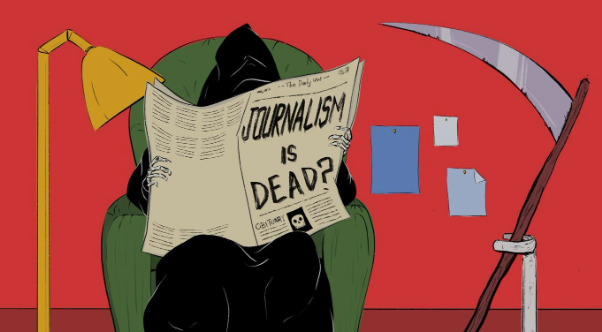By Agha Iqrar Haroon
Last evening, I was talking with one of my teachers who contributed much to my grooming as a journalist, though he had never been my academic teacher, but rather a man of ideas and suggestive teaching.
During our conversation, he said that the success of those who live in corridors of power is determined to learn “When not to speak”. Since journalists who cover state institutions are considered to be a part of statecraft so we had a debate on this phrase that eventually compelled me to a retrospective analysis of what he had shared with me.
The truth usually ignites the urge to voice, while this phenomenon is contrary to “When not to Speak”. The statecraft and the power do not like openness to differ, listening to new ideas, even suggestions; therefore, the commitment to the quest for knowledge and sharing honest thoughts with statecraft can be one of the most dangerous options. So one should learn “When not to speak”.
Journalists are told to write the truth and ask honest questions when they are under training or in universities. However, they face the situation otherwise when they land in practical journalism, where they have to accept “truth has nothing to do with statecraft,” so they must not speak (question) truthfully when covering state institutions. Mostly, questions are shared by the state among chosen journalists in all important press conferences/briefings so that the truth comes out, “what was needed” to come out. The same situation lies when heads of weaker states meet heads of powerful states. They should not suggest what to do and what not to do, they should not share what ground realities are, and they should not speak when a powerful head of state is telling what he/she has already decided about the situation under discussion. The best option for heads of state of weaker countries is to learn “when not to speak”.
The same rule applies to diplomats. When they are meeting their counterparts from powerful countries, they should only listen to what the powerful say and “note down” what the powerful desire. Should a diplomat of a weaker state while meeting with counterpart from G7 remind him/her that when 12 people were killed in Charlie Hebdo attacks, World Leaders thronged to Paris for a Solidarity March but no world leader has organised a march to protest killing more than 80,000 civilians, 25,000 children, over 250 UN aid workers, and 230 journalists in Gaza?
When I was studying in Government College Lahore (now GCU), I was told by the motto of the college that I must have “Courage to Know”. However, this courage cost me several mid-career joblessness jolts, but I could not take out this “Courage to Know” from my cognitive structure. There is a famous phrase, “It’s never too late”. Can it be possible to unlearn the dangerous habit of asking questions to statecraft makers for knowledge?

When we journalists cover any presser after meeting of heads of states or Foreign Ministers etc., we usually ask Sir/Madam, “what you talk about this and that important issue and what have you decided about this and that etc.? Are these not stupid questions? Shall they tell us the truth? There is a phrase “those who do not know—they talk and those who know —they do not talk”. We need to accept that “Truth remains elusive in Statecraft”. Our question to speakers in pressers or press conferences should be “Sir tell us what you wish to tell”.
The rule of statecraft suggests I should follow “when not to speak”. This is the painful “Art of Survival “in today’s journalism.
